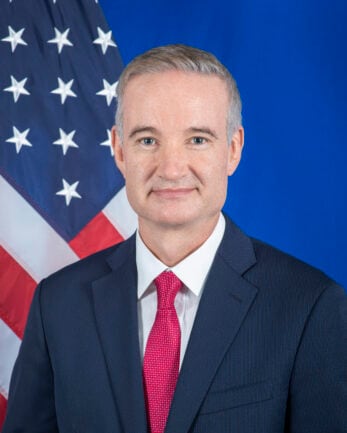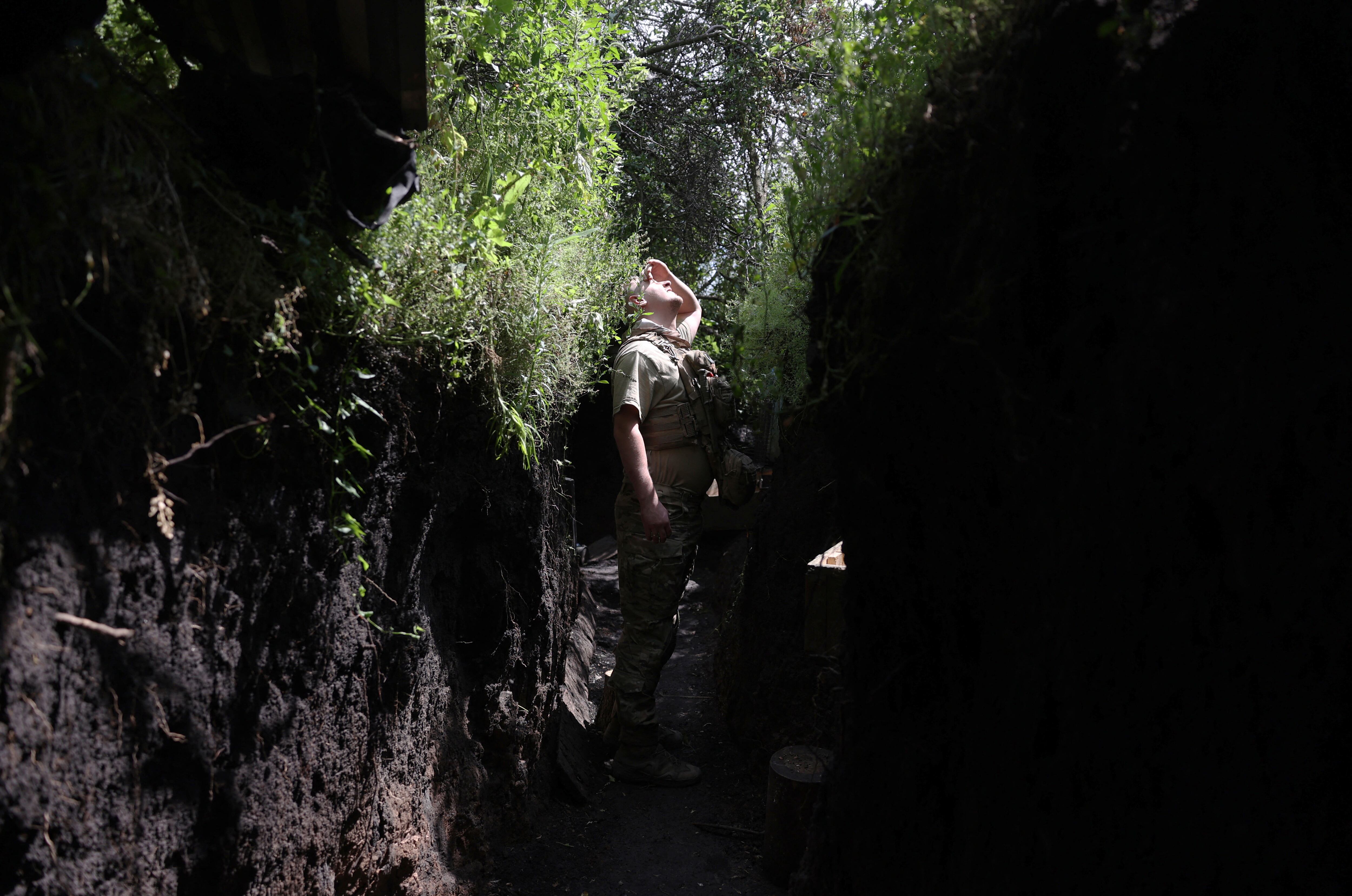STUTTGART, Germany — European nations will need a “new security architecture” on their continent once the war in Ukraine ends, and the Organization for Security and Co-operation in Europe should help lead the way, the U.S. envoy to the group said.
“We are left in a space where it’s very difficult to see the way forward other than — at some point after a Ukrainian victory in this war — we’re going to have to reconstitute the basis of a new European security architecture,” Michael Carpenter told Defense News in an exclusive interview.
By a new architecture, he means a set of institutions that makes OSCE’s participating states more secure and war less likely, Carpenter noted. That would mean restoring conventional military deterrence and, eventually, a new regime of transparency and confidence building, including through arms control.
“Needless to say, a new European security order will take a long time to build given how badly Russia has undermined the institutions that were built up over the last two decades,” Carpenter said.
When that occurs, OSCE will be front and center in discussions about what that security architecture should look like.
The organization is positioned for that job because of its “unique membership” of 57 nations, which includes all members of NATO and the European Union as well as every post-Soviet state, he argued.
“It is the right place in which to build a new European security architecture,” he said.

The organization is focused on countering Russian narratives regarding its invasion of Ukraine, while also supporting Kyiv diplomatically and on the ground.
While Ukraine’s backers across the globe are coordinating military support via the regularly held Ukraine Defense Contact Group — also known as the Ramstein Group, as the inaugural meeting was held at Ramstein Air Base in Germany — OSCE is trying to counter Russian disinformation and documenting its war crimes, which will diplomatically “isolate” Moscow, Carpenter said.
“At the moment, there is not a single other participating state in the OSCE that supports Russia’s war,” Carpenter added. “By exposing Russia’s actions each and every week, we ... provide a historical record for future accountability efforts.”
Russia has remained the only participating state to defend its invasion of Ukraine to the rest of the members since February 2022, the organization confirmed in an Aug. 11 email. Belarus, another participating state, continues to aid Russia with active logistical support and by hosting training sites for Russian forces.
However, at OSCE, Belarus refrains from speaking in support of Russia’s attack on Ukraine, a spokesperson said.
The organization was already on “a downward slope” with Russia for many years, which was “not living up to the letter or spirit” of OSCE’s Vienna Document, said Carpenter, who served as the deputy assistant secretary of defense for Russia, Ukraine, Eurasia and conventional arms control from 2015 to 2017.
In the Vienna Document, OSCE’s participating states commit to sharing detailed information on their armed forces and major weapon systems on an annual basis, along with data about their military budgets, defense and armed forces planning, and scheduled maneuvers.
Moscow announced in 2007 that it was suspending its participation from the Treaty on Conventional Armed Forces in Europe. The government of President Vladimir Putin also positioned troops in the Transnistria region of Moldova, in Georgia, and in Ukraine — moves that each respective government has declared illegitimate.
In recent years, Russia also withdrew from the Open Skies Treaty and the Intermediate-Range Nuclear Forces Treaty; the United States also withdrew from those under former President Donald Trump.
Vivienne Machi is a reporter based in Stuttgart, Germany, contributing to Defense News' European coverage. She previously reported for National Defense Magazine, Defense Daily, Via Satellite, Foreign Policy and the Dayton Daily News. She was named the Defence Media Awards' best young defense journalist in 2020.





